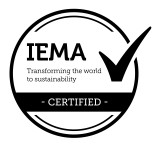The World Economic Forum’s (WEF) Global Risks Report 2024 assessed some of the most severe risks that confront us over the next decade, against a backdrop of rapid technological change, economic uncertainty, global warming and incipient and act...
Read More
The World Economic Forum’s (WEF) Global Risks Report 2024 assessed some of the most severe risks that confront us over the next decade, against a backdrop of rapid technological change, economic uncertainty, global warming and incipient and actual conflict.
The stark conclusion from the report is that the top four most severe risks facing the planet over the next 10 years are all related to the environment – specifically extreme weather events, critical change to Earth systems, biodiversity loss and ecosystem collapse, and natural resource shortages as the top four threats over the next decade.
The report highlights a predominantly negative outlook for the world over the next decade and longer term. It will take a relentless focus to build resilience at organisational, national and international levels in order to navigate this rapidly evolving risk landscape.
Companies can play their part in mitigating these existential threats to our future by, inter alia, implementing environmental management systems (EMS) such as ISO 14001 and/or the associated EU Eco Management and Audit Scheme (EMAS) Regulation.
Environmental audits, which are an integral part of an EMS, are used to assess the environmental risks and liabilities of a business but also to help management improve business performance. The IEMA-approved Lead Environmental Auditor course provides delegates with the knowledge and skills to audit and assess the effectiveness of any EMS in accordance with the requirements of the international best practice standard for management system auditing, ISO 19011:2018 “Guidelines for auditing management systems”. Delegates can thereby make a considerable contribution to their organisations’ drive for sustainable excellence.
This advanced Environmental Management System (EMS) auditing course will equip learners with:
- A detailed understanding of how to audit and assess the effectiveness of any EMS.
A broad understanding of the range and diversity of environmental aspects, issues and environmental legislation and regulations pertinent to companies wishing to gain certification to ISO 14001 and EMAS.
- A practical understanding of how to implement an EMS and troubleshoot EMS issues.
- Knowledge of important related environmental tools and standards.
The course should also prepare delegates for the role of environmental auditors/assessors of EMS to standards acceptable to third party certification bodies.
All attendees should have some familiarity with the requirements of ISO 14001/EMAS before attending this course.
The auditing elements of this course are designed to meet the international best practice standard for management system auditing, ISO 19011:2018 “Guidelines for auditing management systems”.
There is a continuous assessment of practical work carried out throughout the course and a written examination at the end.
Collapse



